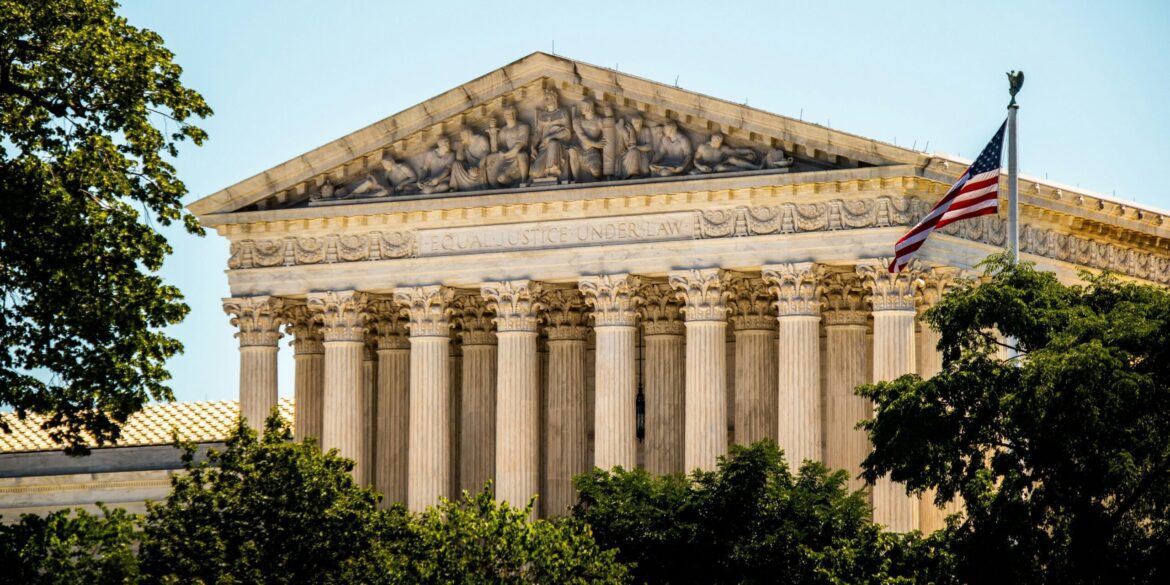The United States Supreme Court is set to deliver pivotal rulings by the end of June 2025 that could significantly influence civil rights and digital content regulation in America. As the Court nears the close of its term, two high-profile cases are drawing intense national attention: United States v. Skrmetti, which centers on Tennessee’s ban on gender-affirming healthcare for minors, and Free Speech Coalition v. Paxton, challenging Texas’s age-verification law for online pornography.
These landmark decisions may set far-reaching precedents on the extent of state power in regulating personal medical decisions and access to internet content, making June a critical month for advocates, legislators, and legal scholars alike.
United States v. Skrmetti: Gender-Affirming Care Under Constitutional Scrutiny
At the heart of United States v. Skrmetti lies Tennessee Senate Bill 1 (SB1), a state law banning the use of puberty blockers and hormone therapy for individuals under 18 when used for gender transition purposes. While allowing the same treatments for other medical needs, the law specifically targets gender-affirming procedures, sparking concerns of discriminatory intent.
The original lawsuit was brought by three Tennessee families with transgender children and a Memphis-based physician, claiming the law violated the Equal Protection Clause of the Fourteenth Amendment. A federal district court initially agreed, blocking the law. However, the Sixth Circuit Court of Appeals reversed that decision, allowing SB1 to go into effect while litigation continued.
The Supreme Court agreed to hear the case, seeing constitutional questions substantial enough to merit resolution. Central to the debate is whether laws targeting gender-related treatments constitute sex-based discrimination and whether such restrictions can survive heightened judicial scrutiny.
Interestingly, the federal government’s stance on the issue has evolved. While the Biden administration initially supported the plaintiffs, citing violations of equal protection rights, a subsequent shift in executive policy saw the Department of Justice withdraw from active involvement, stating it would not have intervened under current priorities. Regardless, the Court has proceeded, recognizing the broader legal implications for medical access and civil liberties.
If upheld, SB1 could encourage other states to implement similar restrictions, effectively curbing access to gender-affirming care for transgender minors across the country. If struck down, the ruling may establish stronger federal protections for transgender youth, potentially limiting state power to regulate such medical decisions.
Free Speech Coalition v. Paxton: Age-Gating and Free Speech Online
In Free Speech Coalition v. Paxton, the Court addresses whether Texas House Bill 1181 (HB 1181), which mandates age verification for users accessing online pornography, infringes on constitutional free speech rights.
The law requires websites hosting more than one-third content considered “harmful to minors” to implement robust age-verification systems. Violators risk significant penalties, including civil liabilities. Supporters argue the law protects children from explicit content, aligning with long-standing government interests in shielding minors from harm.
Opponents, including the Free Speech Coalition—a trade group representing the adult entertainment industry—claim the law is overly broad and burdensome. They argue it infringes on adults’ rights to access lawful content privately and imposes technical and financial challenges on online platforms.
A federal district court initially blocked the law from taking effect, citing potential First Amendment violations. However, the Fifth Circuit Court of Appeals reinstated it, applying a lenient rational basis review and finding the state’s interest in protecting minors compelling enough to justify the regulation.
The Supreme Court’s review centers on the appropriate standard of scrutiny—whether laws affecting adult access to online content should face strict scrutiny or a more relaxed review. The Court must also consider how to balance the state’s protective aims against the public’s interest in free expression and privacy in the digital age.
A ruling upholding HB 1181 could pave the way for similar legislation nationwide, reshaping the landscape of online content regulation. Conversely, if struck down, it could reaffirm the strength of First Amendment protections in the digital realm and limit state governments’ ability to impose restrictive access controls.
Implications for the Future
The upcoming decisions are expected to carry broad implications, not only for the parties involved but also for national policy, legal precedent, and public discourse. In the case of Skrmetti, the outcome will likely define the future legal framework for transgender healthcare access, especially for minors. It may also influence how courts interpret equal protection in relation to gender identity moving forward.
Meanwhile, Paxton tests the boundaries between technological enforcement, child safety, and adult freedom. A strict ruling in favor of age-gating could open doors for more aggressive internet regulation by states, while a decision emphasizing free speech might constrain government intervention online.
These cases reflect larger cultural and political debates playing out across the country. Issues of bodily autonomy, parental rights, medical freedom, digital censorship, and government overreach all intersect within the courtroom’s deliberations.
As the nation awaits the final opinions, legal analysts warn that the ripple effects will extend beyond Tennessee and Texas. State legislatures, advocacy groups, and digital platforms are already bracing for the potential outcomes. Meanwhile, individuals on both sides of the debate see these rulings as emblematic of broader battles over identity, rights, and the role of government in American life.
By late June, the Supreme Court’s rulings are expected to offer clarity—if not consensus—on two of the most divisive and consequential issues of our time. Observers across the political spectrum agree that these decisions will leave a lasting mark on the nation’s legal and cultural landscape.

